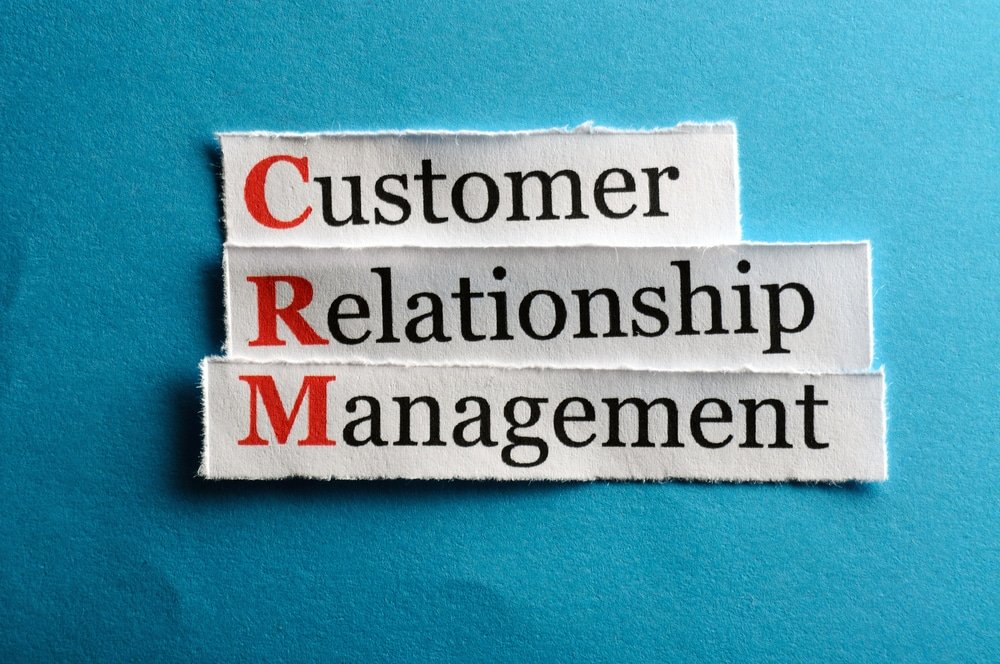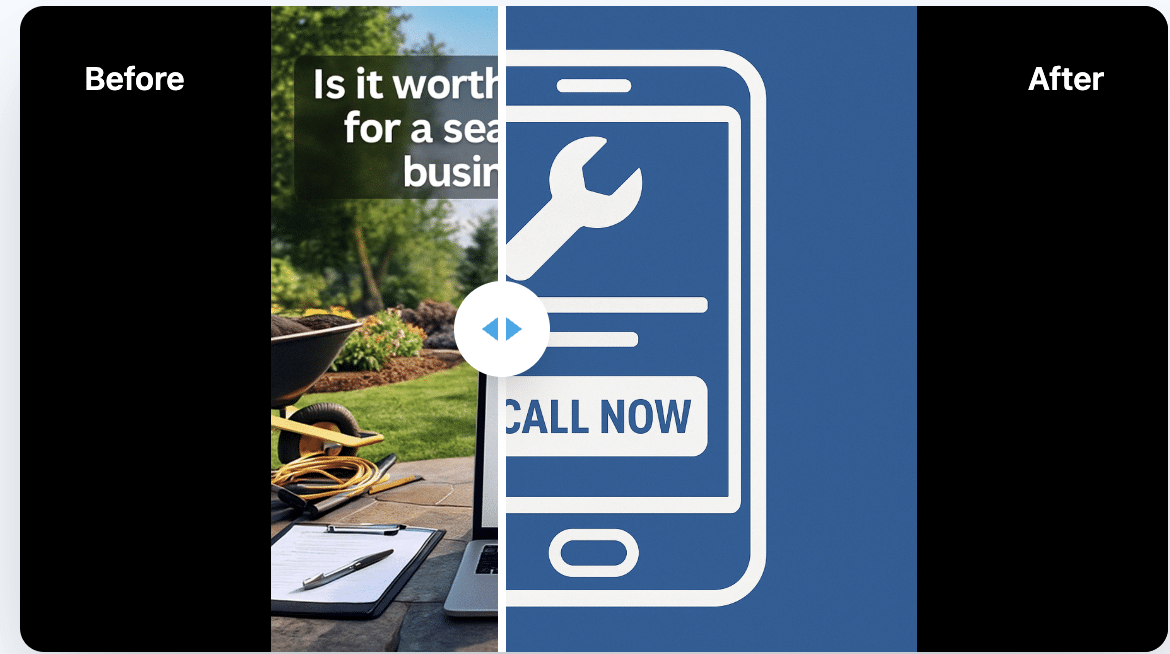Mastering the Art of Customer Relationship Management (CRM)
What exactly is CRM? Customer Relationship Management (CRM) isn’t just a fancy business acronym. It’s the linchpin for growth, profitability, and lasting success in the modern, customer-centric business world. Grounded in cutting-edge technology, CRM redefines how businesses interact and manage relationships with customers and potential customers, thereby expanding your business scope.
Why CRM Is Critical to Your Business Success
At the heart of CRM is the nurturing of relationships with individual people. This includes not just customers, but service users, colleagues, and suppliers as well. Every single interaction, from the initial discovery to post-purchase support and beyond, contributes to the lifecycle of these relationships.
By focusing on these relationships, a CRM system provides everyone — from sales, customer service, business development, and recruiting, to marketing — a better, more efficient way to manage external interactions and relationships that drive a business leader’s success.
CRM is paramount to business success due to its multifaceted ability to improve customer relationships, streamline internal processes, and drive business growth. With a well-implemented CRM solution, businesses can turn raw customer data into actionable insights, fostering a more personalized and efficient customer experience. The centralization of data in a CRM system serves to unify sales, marketing, and other customer service relationships across departments, mitigating potential bottlenecks and enhancing the overall internal synergy.
Moreover, in an increasingly competitive business environment, CRM solutions provide a critical edge by making businesses more customer-centric. By capturing and analyzing customer interactions, businesses can effectively tailor their offerings and communication strategies, fostering loyalty and boosting customer retention. Further, automation capabilities present in many CRM platforms enable businesses to automate routine tasks, freeing up valuable resources for strategic decision-making and innovation.
Ultimately, CRM is not just a tool but a strategic approach that places customers at the heart of business operations. It’s an investment in understanding and meeting customer needs, enhancing customer satisfaction, and driving business growth. The adoption lead management of and integration of CRM technologies across all facets of a business is therefore integral to achieving long-term success in today’s customer-driven marketplace.
The Comprehensive Tool: What a CRM System Can Do
The functionality of a full marketing automation CRM system is expansive. It provides a central location where customer and prospect contact information is stored. Sales opportunities are identified, service issues are recorded, and marketing campaigns are managed.
With such a centralized repository of data, collaboration, and productivity across your business users your company can see customer journey with a significant boost. With information about every customer interaction at everyone’s fingertips, making informed decisions to improve customer service relationships becomes second nature.
Small businesses can also reap extensive benefits from a full CRM data and system. With the challenges of finding ways to do more with less, a CRM tool can drive business growth by helping teams become more efficient.
CRM (Customer Relationship Management) systems are comprehensive tools that streamline customer interaction, enhancing businesses’ ability to cultivate meaningful and profitable relationships. They centralize customer data in a singular location, a feature that benefits both internal stakeholders and customers. It provides stakeholders with real-time access to relevant customer information across different departments and locations, ensuring that the entire organization is prepared to meet customer needs.
With the explosion of customer data available, a CRM system acts as a unified source of truth, capturing all customer interactions across sales, support, and marketing departments. It meticulously stores essential metrics, such as customers’ personal information such as purchase history, behavioral patterns, and personal preferences, which can be utilized to gain a deeper understanding of customers. By fostering personalized and relevant communication, CRM systems aid in enhancing customer satisfaction and loyalty, ultimately benefiting the business.
In today’s digital era, where customer expectations are increasingly high, CRM tools facilitate the entire customer acquisition journey. From lead capture to conversion, they keep track of all interactions a customer has with a company, expediting the sales process and increasing closing rates. After conversion, advanced marketing CRM solutions and tools ensure customers have a personalized experience and receive regular communication. They enable quick problem resolution, enhancing customer loyalty and brand image. Furthermore, CRM systems assist brands in collecting valuable feedback, which can be used to improve the organization and its offerings.
A CRM system is not merely software but a comprehensive tool that is business data and boosts the sales funnel, productivity, and customer satisfaction. By centralizing and utilizing customer information effectively, businesses can enhance their customer relationships, their sales funnel improve their brand image, and stay ahead in the competitive market.
The CRM Market: A Rising Giant
CRM is more than just a business tool. It’s a market powerhouse, projected to reach a staggering USD $114.4 billion by 2027. As businesses recognize the need to prioritize customer-centric strategies, enabled by the right technology, the growth of CRM shows no signs of slowing.
The Advantages of a CRM System: Translating Data into Insights
In today’s digital age, data is abundant. A full CRM data and system serves as a tool that translates the many streams of data from sales, customer service, direct marketing campaigns, and social media monitoring into useful business information1.
The clear overview of customers that a CRM system provides is invaluable. A comprehensive snapshot of customer interactions, purchases, pricing, and more is accessible in one location, helping you better understand customer behavior and make strategic decisions.
The Broader Perspective: CRM Principles and Practices
In a broader sense, CRM also refers to the principles, practices, and guidelines that an organization adheres to when interacting with its customers. It enhances the customer’s overall experience, guiding direct interactions with customers through sales and marketing materials service-related processes, forecasting, marketing automation tools, and the analysis of customer trends and behaviors.
The Future of CRM: Technology, Cloud Computing, and AI
The technological landscape of cloud-based CRM implementation is ever-evolving. Key areas of growth include software, cloud computing, and artificial intelligence. With these advancements, the cloud-based CRM is increasingly being used to manage external interactions with customers throughout the customer lifecycle.
Customer Data
Customer data refers to information collected about individuals’ interactions with a business. This data can originate from various touchpoints like websites, social media, or email campaigns, and contributes significantly to personalized messaging and targeted marketing campaigns. With the rising trend of digital technology usage, customer data generates both a unique opportunity for companies to enhance their consumer engagement and the responsibility to secure consumer data.
Data such as location tracking and personally identifiable information are extremely valuable to businesses, providing insights to better understand customer pain points and unmet needs, leading to more sales forecasting and the development of new products and services. Moreover, the personalized advertising and other marketing tools they enable have a global value estimated at $300 billion.
However, in the era of cybersecurity threats, customers’ willingness to share data depends heavily on their trust in the company’s data handling practices. They need assurance that their data won’t be re-purposed or resold in objectionable ways and that it is secure against cyber breaches. Indeed, research shows that customers are becoming increasingly intentional about what types of data they share, and with whom.
This puts the onus on companies to not just passively collect data, but to actively manage it. Successful customer data management (CDM) encompasses how businesses acquire, store, organize, and use customer data. It’s crucial for CDM to include data privacy and compliance, ensuring not just regulatory adherence but also meeting customer expectations for privacy. Businesses must adopt robust CDM strategies and leverage tools like customer data platforms to effectively manage the deluge of data, ultimately transforming it into useful customer profiles to improve sales and marketing efforts.
Customer data presents an invaluable opportunity for businesses, but it also necessitates a careful and considerate approach to the management and protection of all the data, in order to maintain customer trust and compliance with emerging privacy regulations.
CRM Systems
Customer Relationship Management (CRM) and sales management systems have established themselves as integral tools in the business world, enabling organizations to manage and optimize their relationships with customers effectively and efficiently. The core purpose of most CRM systems and sales manager solutions is to centralize customer data, providing a unified platform that allows all stakeholders to access, analyze, and utilize customer information for various business operations.
CRM software offers numerous benefits that stretch across the entire sales cycle, from identifying prospects to cultivating and maintaining profitable customer relationships. The data collected by CRM systems can be mined for valuable insights, used to automate marketing and sales processes and help forecast future and sales growth. One of the key advantages is the ability to centralize customer data, ensuring all sales managers and stakeholders can access relevant information, thus enabling the entire organization to provide superior customer service.
Modern CRM software tools have evolved to incorporate integrations that foster collaboration and accessible data all under one roof. These tools empower different departments with the same data, promoting a unified approach toward customer relationship management. Companies can now deliver consistent, personalized interactions using the information garnered through many CRM systems and platforms.
Moreover, CRM software is equipped with features that allow companies to target different audiences, design intelligent automation based on individual customer activity, and manage relationships proactively. Some of the notable benefits of these CRM tools and platforms include dashboards that visually showcase data, customer-centric and automation tools, optimized processes, proactive service, and simplified collaboration.
To sum up, a CRM system consolidates a comprehensive analysis of customers’ online and offline activity, offering a holistic view of their needs. This valuable information can be used to tailor marketing, sales, and service strategies to meet and exceed customer expectations, ultimately driving business growth and profitability.
Benefits of CRM: Organizing and Centralizing Customer Information
The benefits of a CRM system extend beyond just business efficiencies. It aids businesses in optimizing sales and marketing, improving customer retention, and making data analytics easier. As a result, customers receive better service and are likely to report higher satisfaction.
In conclusion, Customer Relationship Management (CRM) is not just a concept. It’s a process, a tool, a strategy that takes your business to new heights of growth and profitability. By placing your customers at the heart of your whole business process, CRM allows you to understand their needs, align your strategies, and ultimately build long-lasting, fruitful relationships.
Learn more about our CRM right here.
Frequently Asked Questions about What Exactly is CRM?
What exactly is CRM?
Customer Relationship Management (CRM) is a system that businesses use to manage customer relationships and interactions with existing and potential customers. It involves the use of technology to streamline and automate sales, marketing, customer service, and technical support processes. A CRM system allows businesses to track and manage customer information and interactions in a single location, ensuring that every team member has access to the same information.
What functions does a CRM system provide?
CRM software offers a range of capabilities, including tracking customer data for marketing, customer service, and sales teams. It can collect customer data from multiple sources such as website forms, emails, and direct interactions with sales and customer service representatives. The system then provides visibility into this data for all relevant teams in a company. This comprehensive view of customer interactions allows businesses to offer personalized experiences and build customer loyalty.
How does CRM software benefit a business?
CRM software can greatly benefit businesses by improving their efficiency and customer relationships. It can help sales teams generate more sales leads, speed up the sales cycle, monitor customer experience levels, reduce manual data entry, and ultimately increase revenue. It also aids in improving customer retention and making data analytics easier. The visibility and accessibility of customer data can lead to better customer service and higher customer satisfaction.
What is the difference between CRM and ERP?
While both the Customer Relationship Management system (CRM) and Enterprise Resource Planning (ERP) systems aim to increase a business’s efficiency, they focus on different areas. CRM software centers on managing customer relationships and is often used by customer service, marketing, and sales representatives. In contrast, ERP systems are designed to manage internal business processes and are typically utilized by finance, inventory, and procurement professionals.
Does a small business need a CRM system?
While startups might manage with basic contact management systems or spreadsheets, as a business grows, the use of CRM software becomes increasingly beneficial. CRM allows businesses to effectively manage their entire sales process and sales pipeline and achieve their customer retention goals. Having a single source of data ensures that service and sales reps have the correct, consistent information, eliminating disjointed experiences that can lead to customer dissatisfaction.






















